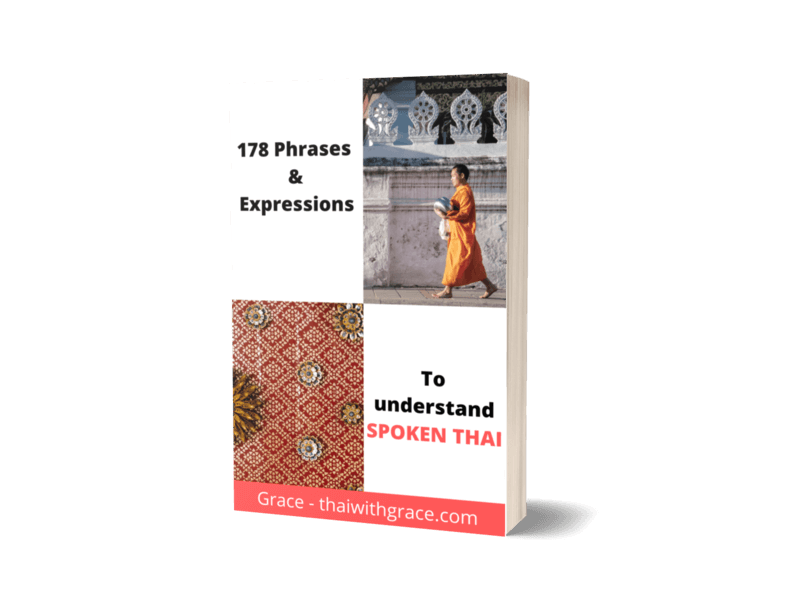After reading this article, you should be able to get a good feel for when หรอก (ròk) is used and how it’s used.

Meaning of หรอก
หรอก (ròk) is a particle that is placed at the end of negative statements (ex: it’s not a problem, it’s not it, I won’t be there, I don’t remember, etc). When you add ròk to the end of negative statements it makes it a bit less harsh.
For example, let’s compare “it’s not a problem ròk” with “it’s not a problem”. Both statements are perfectly fine but the one ending ròk sounds a bit nicer and makes it seem like it’s 100% not a problem.
Let me show you some more examples:
- It’s not a problem rok, It’s just a small matter.
ไม่เป็นปัญหาหรอก เรื่องเล็กแค่นี้
mâi bpen bpan-hăa ròk · rêuang lék kâe née - it’s not it rok, he’s not a bad guy rok.
ไม่ใช่หรอก เขาไม่ใช่คนเลวหรอก
mâi châi ròk · kăo mâi châi kon leo ròk - I can’t go rok, I have homework to do.
ฉันไปไม่ได้หรอก ต้องทำการบ้าน
chăn bpai mâi dâai ròk · dtông tam gaan bâan - I don’t remember rok, it’s long time ago.
ฉันจำไม่ได้หรอก มันนานมาแล้ว
chăn jam mâi dâi ròk · man naan maa láew
I hope you now know how to use หรอก (ròk). It can be placed at the end of any negative statement to make it sound milder.

